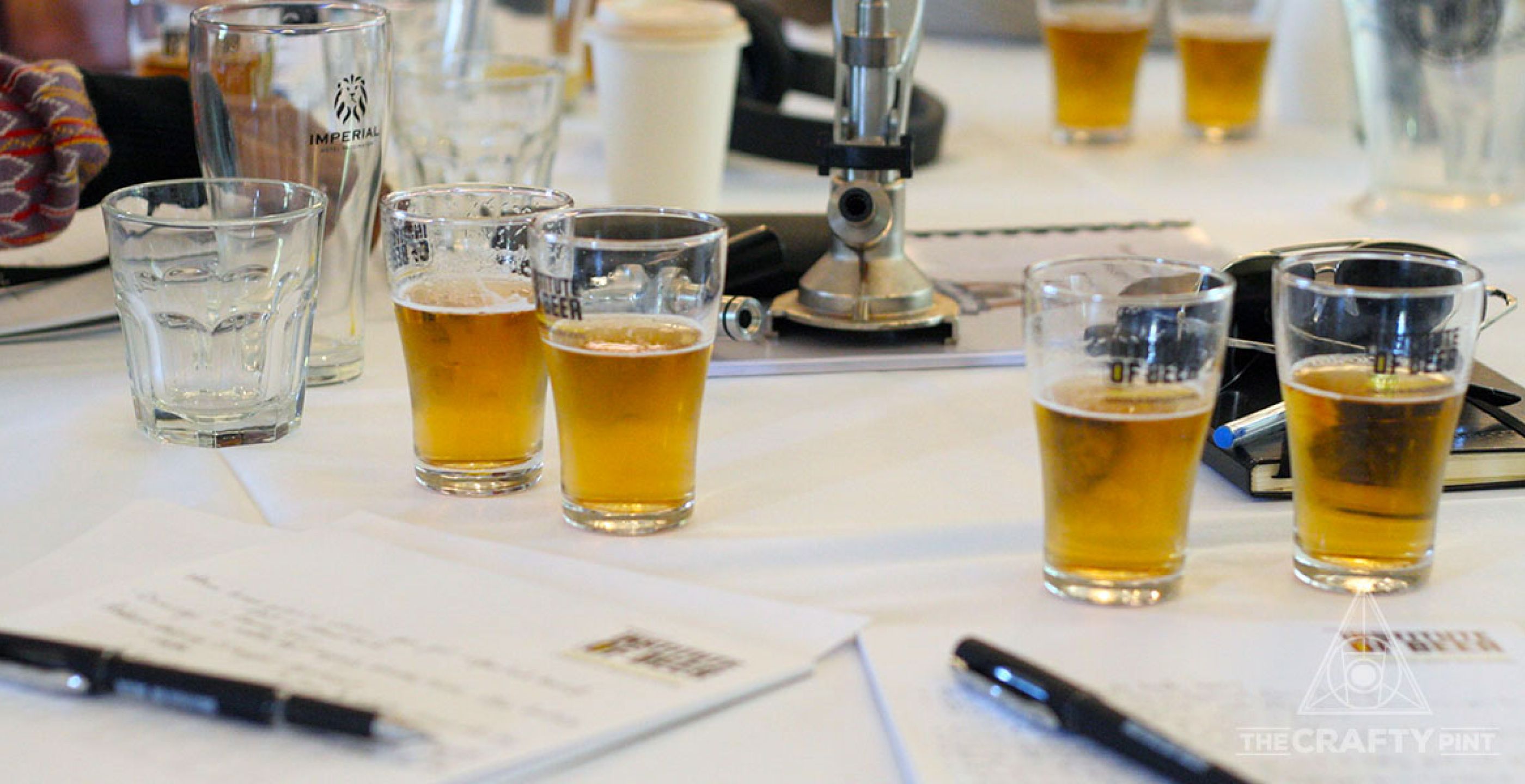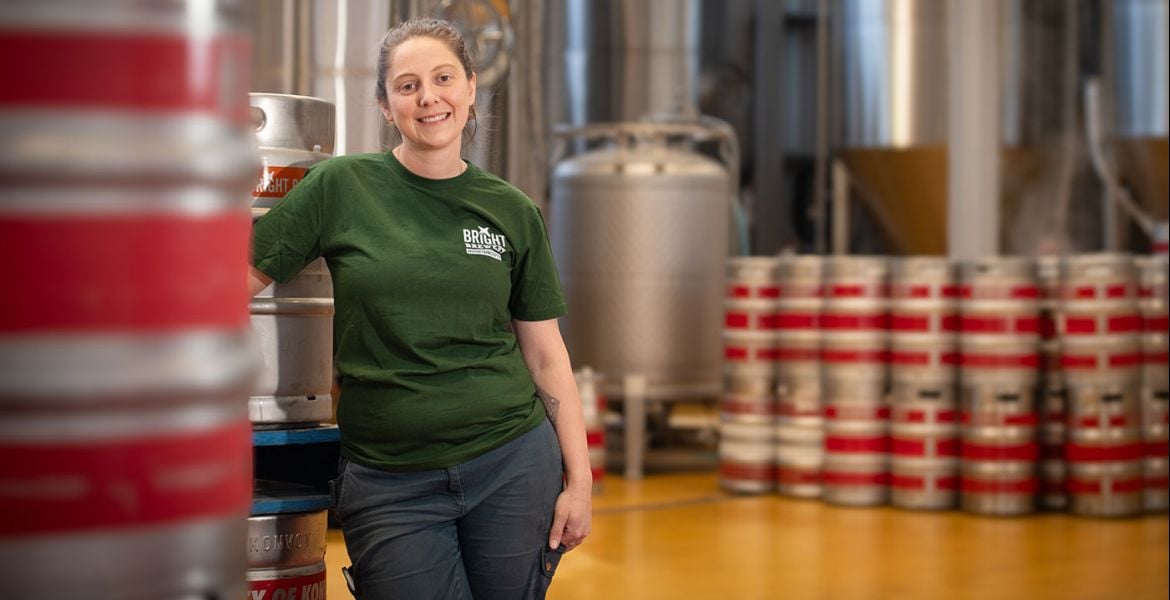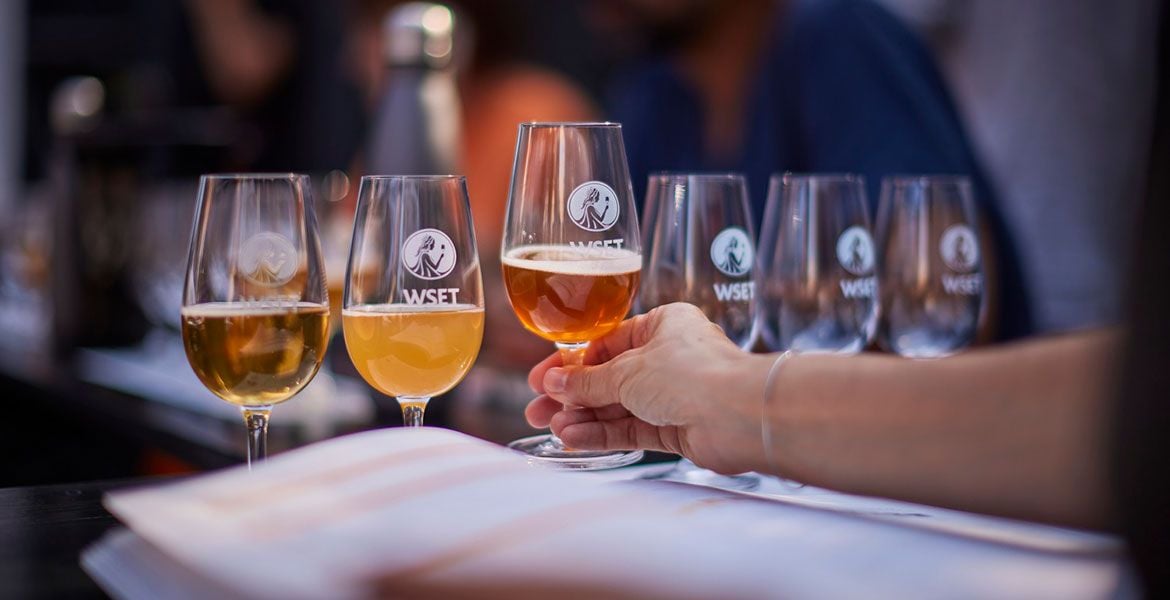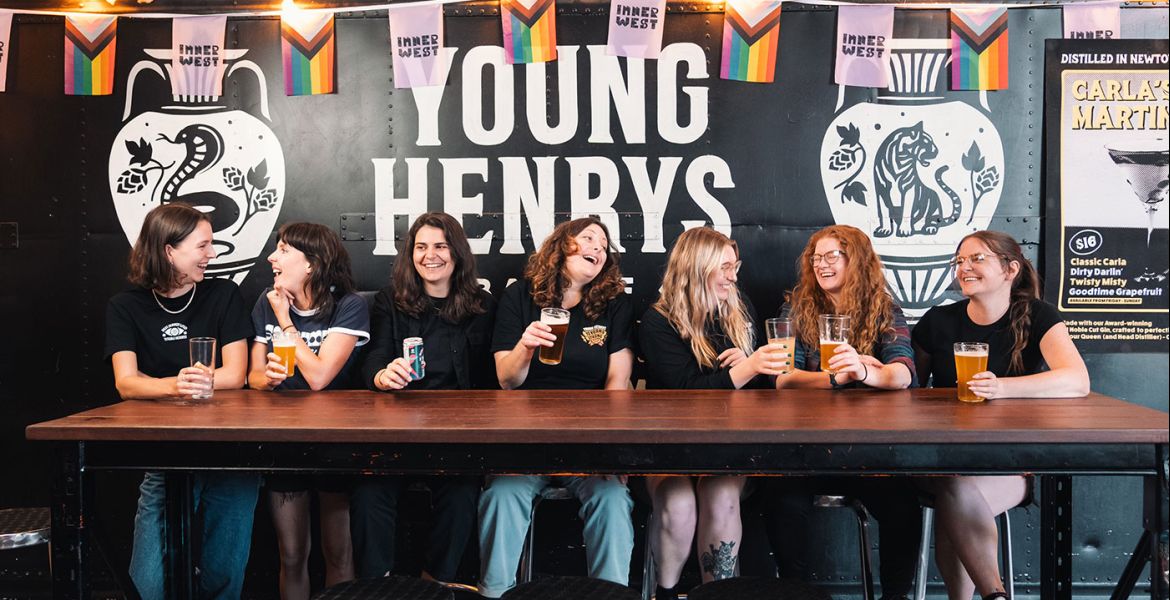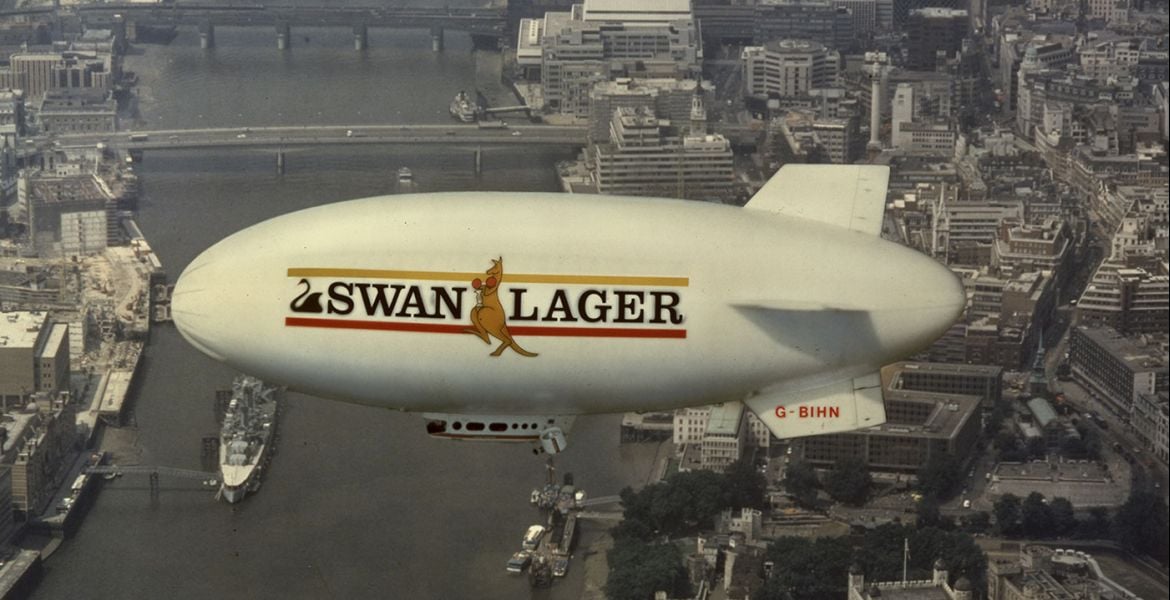The tiny bubbles were the only clue. The beer had just been poured and they were everywhere – not just on top, where they should be, but clinging to the wall of the glass in vast clusters. With only a few patchy streaks completely clear of the fizz, the whole thing resembled a satellite image of whirling storm clouds.
It’s not the kind of detail you’d normally notice, though you’ve almost certainly seen it before. More likely you just never cared because, well, why would you? Beer is meant to have bubbles. It’s not until someone points it out that you’d even raise an eyebrow. But the devil is in the detail: bubbles, apparently, won’t stick to a clean glass. This one was filthy – and it was killing the beer.
“The number of times I've had to send beer back due to a dirty glass is appalling,” says Neal Cameron, one of the founding directors of the Institute of Beer (IOB), a Sydney based consultancy specialising in educating drinkers and industry professionals.
“If a brewer works hard to produce a good beer and the customer is paying upwards of $9 for a schooner nowadays, surely venues can clean their glasses properly. A good beer takes weeks to make on incredibly expensive equipment, is expensive to store and, hopefully, transport cold and all this can be destroyed by pouring the beer into a poorly cleaned glass.”
The smeared schooner and extra effervescence had been arranged for effect as one of a gamut of practical demonstrations during the IOB's Certified Beer Server course, a program where you literally become qualified to pour a beer. Now, if your first thought upon reading that is to scroll to the comments section and make the internet community aware that no piece of paper is required to pour a beer and that people have gotten by quite sufficiently without it to date, also consider that you may be precisely the kind of person the hosts want doing this course.
The act of pouring a beer is, let’s face it, not an especially difficult one. Then again, nor is cleaning a glass. But knowing how to do something doesn’t mean you couldn’t be doing it better, which is why the course isn’t just about pouring beer. It’s about that and everything that surrounds it: how a beer should be properly stored, how draught equipment works and can be maintained, understanding beer styles, flavour training, identifying faults – and, yes, how to clean your glasses properly.
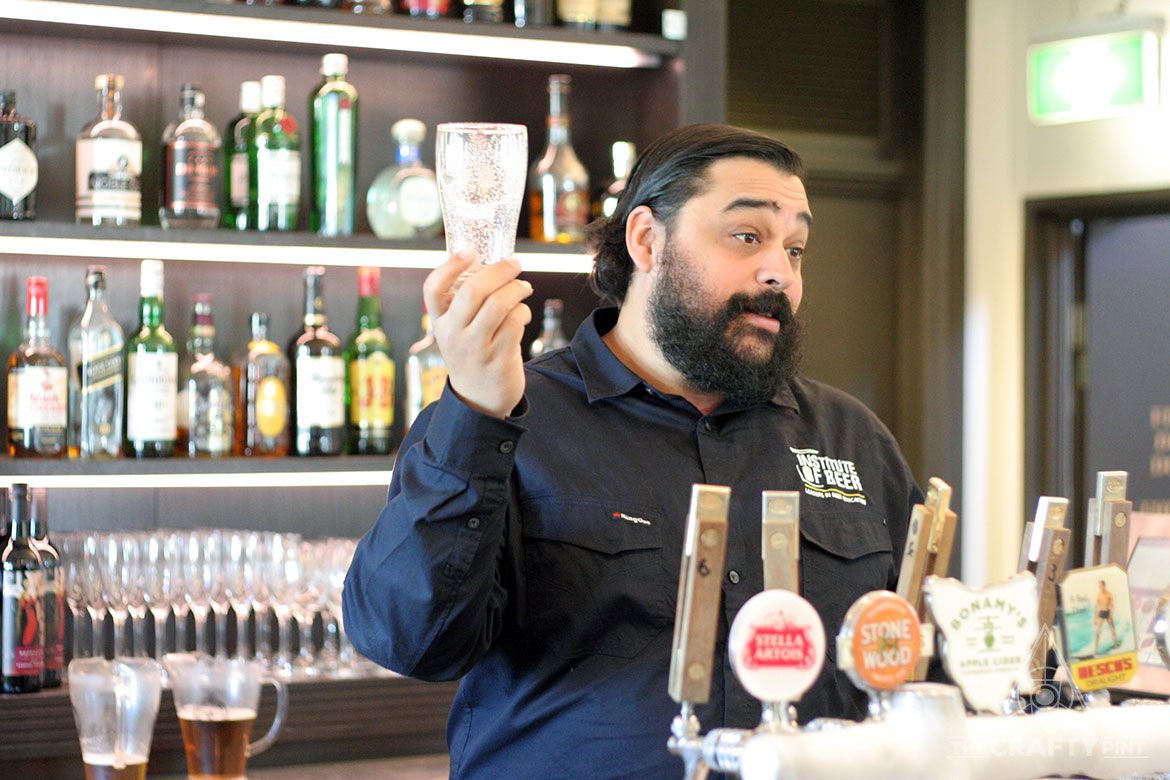
In the context of the wider industry, the timing seems right for an increased focus on education as the rise and spread of small breweries fuels a thirst for beer knowledge, formal or otherwise. With more breweries now making a greater variety of beer and more places open to selling it there are more choices than ever for the consumer, and with more choice comes greater engagement. Simply put: drinkers are getting smarter.
At the same time, as competition intensifies and the big players invest heavily to protect their dominance, education at all levels of the beer world becomes ever more important; for small, independent brewers to continue to make inroads, they need their beer to be high quality, to reach drinkers in the best possible condition, and to be understood by drinkers and retailers alike.
After decades of movement towards a monoculture, the commoditisation of beer is, perhaps, finally beginning to be reversed and people are no longer unquestioningly swallowing whatever beer is being served to them. And, not only is this newfound exposure leading people to focus on flavour, quality and provenance, they’re also narrowing in on the finer points. They’re beginning to notice and question the difference between a "Best Before" and a "Brewed On" date. They know to think twice about buying beer that’s been sitting on a warm shelf, just as they query why kegs can be seen sitting at ambient temperature in a venue rather than in a cool room. They’re starting to notice the tiny bubbles.
As this happens, a growing number of beer educators are stepping in to try and plug the holes left between what people believe they know and what some loose definition of “best practice” suggests they should be aspiring to.
“I think it’s enormously patchy”, says Neal of the perceived knowledge gap from an industry perspective.
“[You have] places like The Local Taphouse that make sure all their people have training and knowledge certification to ensure their customers are getting beer served at its very best … to venues that continue to miss the opportunity to break outside a very narrow range of offerings and lack understanding of how to look after and serve beer at its best.
“I have to say, though, that we are definitely moving from unconscious incompetence to conscious incompetence.
“Beer is an insanely complicated food with an enormous range of styles, breweries, potential pitfalls and offerings. I've been making, studying, training, consuming and judging beer for nigh on two decades and I still learn something new every day. The industry is beginning to realise it perhaps doesn't know enough about this amazing product and are aggressively looking for education to correct the knowledge gap.”
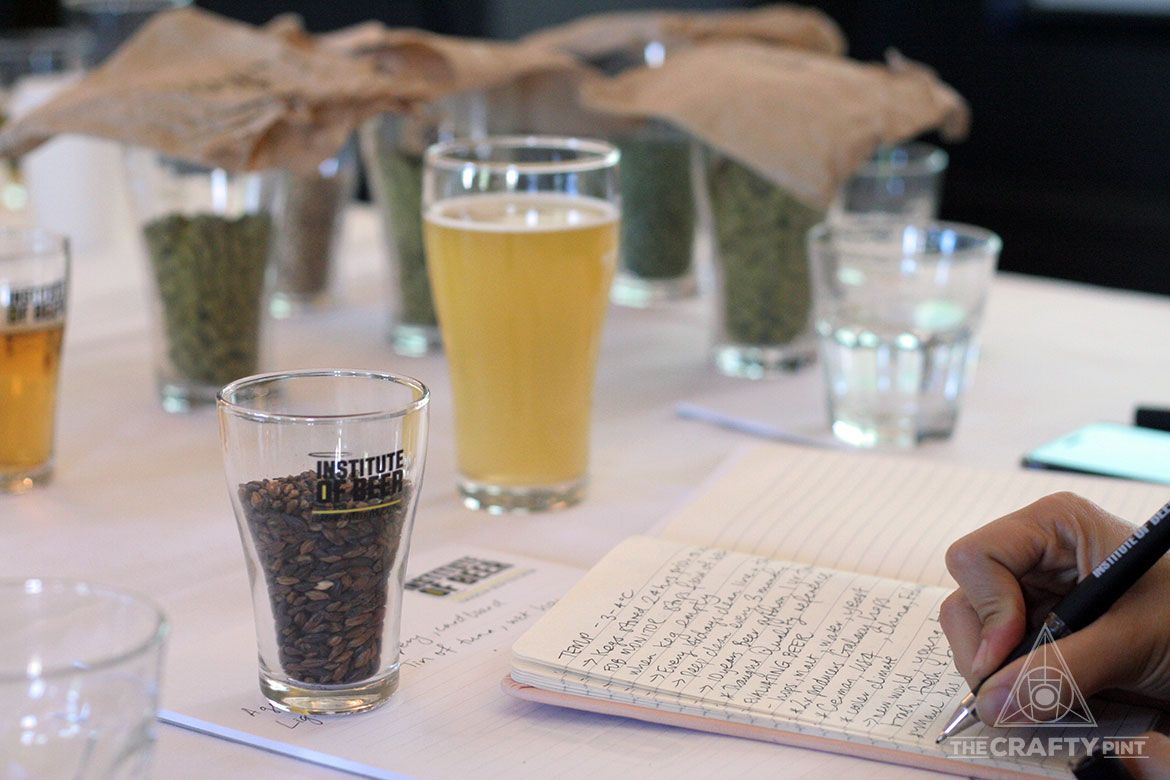
On the other side of the country, Alè Alberti had spotted the gap too.
While working behind the counter of the Cellarbrations Superstore in Perth, he’d begun pondering the way the wine industry had leveraged education on its way to being embraced so fully throughout society. He saw the potential to do something similar for beer so teamed up with brewer of nearly two decades – and former teacher – Mal Secourable, of The Monk, on a “beer education concept” they‘ve called LiquidBred.
The reason for launching the initiative is, according to Alè, “because of witnessing the profound impact wine education had on demystifying wine in Australia and, by association, making wine more accessible to the ordinary consumer.
“No doubt there were a multitude of factors involved, but the incredible impact wine writers and critics had, combined with the spread of wine education and appreciation courses – frequently supported by the relevant state based wine industry associations – encouraged a much wider consumer demographic to explore wine," he adds.
“This has been slow to emerge in relation to beer. We now have some very good beer focused journalists but no independently based, consumer focused beer appreciation or education courses. To me at least, it seems the next step for the craft beer industry.”
Unlike the Institute Of Beer, where courses arguably align more towards the industry (they are the local agents for the global Certified Cicerone program), LiquidBred has launched with a focus on the consumer end. As such, their two courses – a half day masterclass and a six week “odyssey” – won’t give you an internationally recognised accreditation to put on your CV. But they are meant to be fun and open the eyes of the average person to the kaleidoscope of beer styles through tastings and modules with inviting names like Lager: The Bastard Child of Industry and Altered States: The Sacred and Psychotropic.
"For me, it’s perhaps about moving beyond those who have already come to appreciate all that 'craft beer' has come to offer and onto those who have perhaps yet to try or experience what our industry is doing," says Alè.
“It’s pretty exciting times out there and brewers globally are producing some exceptional beers, so I guess it’s just about letting people know that they have choices.
"Just as post-war immigration irrevocably changed our culinary habits and wine education opened up the world of wine to the ordinary person, I would love to see that happen for beer.”
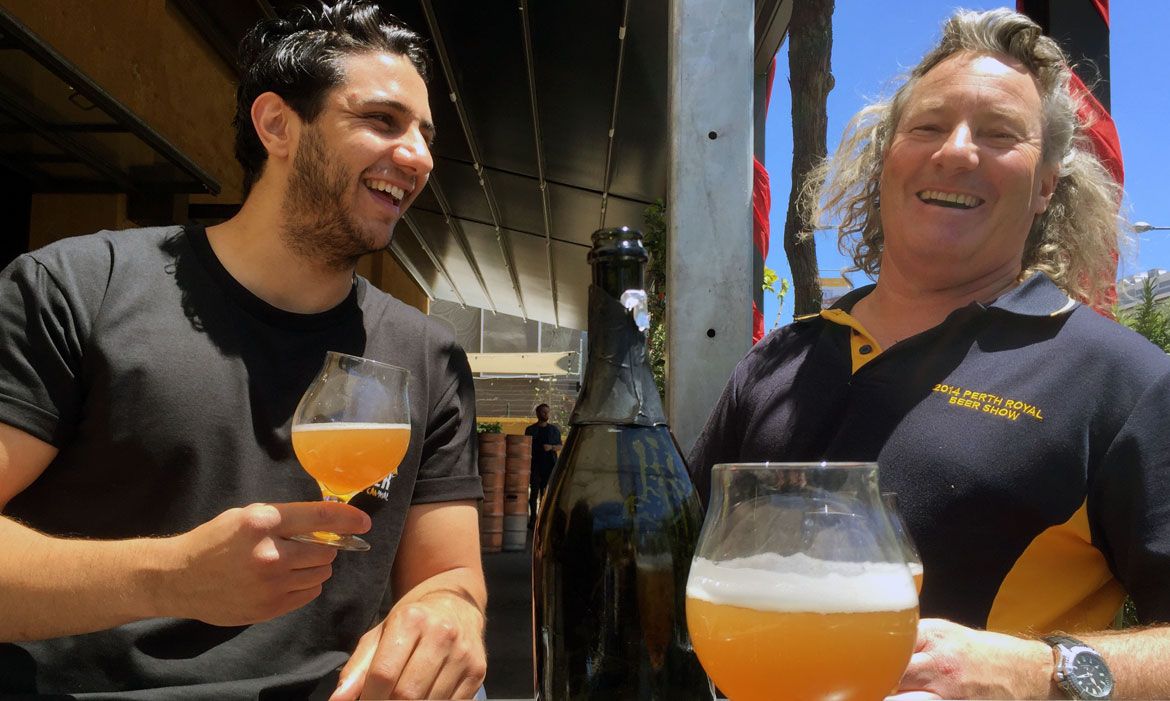
It is happening – and at many levels.
Go to a degustation at a decent beer venue and chances are you'll have a brewer or chef – often both – on hand to talk you through how the beer was made and why it pairs with certain foods. Breweries regularly collaborate with venues, not only for the sake of creating the end product but as a learning exercise; bar staff gain an understanding about how beer is actually made and get buy-in to the whole process. Bottleshops and venues often run their own truncated versions of a Beer 101.
Without too much effort you can join a brew day, take part in a vertical tasting or sit down to a masterclass with a brewer. Public interest has even helped take The Crafty Pint’s own Blind Tastings from a feature on the site to regular consumer facing events.
Ultimately, each of these small things is a way of making people think more about the beer they buy and consume. And, in an increasingly competitive industry, where lines are being blurred in everything from styles to ownership, knowing something about the beer you’re drinking is has commensurate importance. Drinkers are actually interested in how a beer is made. They want to know what ingredients went in and who owns the brewery that makes it. Beer knowledge is not something that is confined to a brewery.
Last year, Victoria’s Bright Brewery made the decision to put all its staff through formal beer training, for reasons the brewery’s marketing manager James Davidson explains: “The heart and soul of our business is making beer [but] the one skill that’s universal across our business is beer knowledge. Therefore it’s important that everyone who works at Bright is an advocate for good beer and has an understanding of why we make beer the way we do.
“Truly good beer is far more complex and nuanced than most of our staff were aware of before joining Bright, due to us all growing up with Australia’s broad culture of 'beer is beer” – a one dimensional drink that’s yellow, fizzy and has a 'beery' taste.”
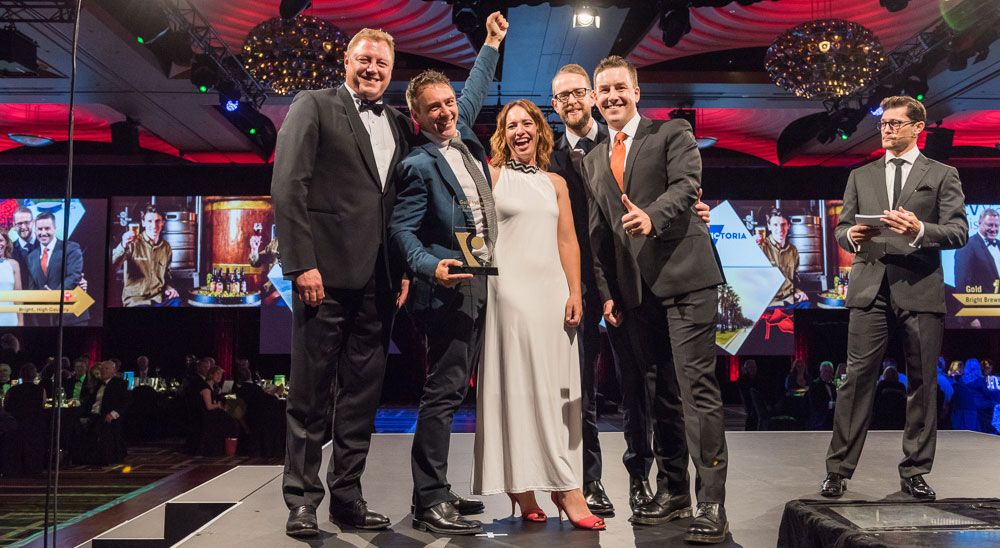
James (above, second from right) suggests that the training, which they opted to do through the Institute of Beer, helped give staff a deeper understanding of beer’s history and diversity, which in turn leads to a higher quality and more authentic service across the chain, whether with suppliers, customers, partners or sponsors.
There are more quantifiable business benefits too, from staff knowing how to pour beer correctly so as to reduce wastage, ensuring draught lines are well maintained to minimise the chance of beer spoilage, having skills to solve simple issues with dispensing systems, having the knowledge and confidence to carry a conversation with customers, or simply understanding how to store beer properly so that the product people buy is in good condition and, hopefully, means they come back for more.
Taken within a holistic view of the business, a willingness to invest in education – not just specific to beer but also in the likes of management, leadership and hospitality – was almost certainly a factor in Bright becoming the first brewery to win gold at the Victorian Tourism Awards in 2017.
James also believes beer knowledge and improved service will become more important in helping brewers and venues to differentiate themselves in that increasingly competitive marketplace:
"If your staff can clearly communicate and present the value of your beers, you’re more likely to win over new customers and increase the market share for craft/better/independent beers, and it makes it easier to operate at the price-point you need to run a sustainable small brewery. You’re also more likely to have customers leaving happy and posting a great review online.”
There’s an oft-repeated line about beer making you smarter – and there’s little doubt it can make you feel smarter – but perhaps the key is being a bit smarter about the way you think about it.
The author learned how to pour a beer on the Certified Beer Server course as a guest of the Institute of Beer – to see the full range of courses visit www.theinstituteofbeer.com. For details on the range of courses offered by LiquidBred, visit www.liquidbred.com.au.
TAFE SA also has two different courses for people interested in learning more about beer and brewing running over four weeks in June 2018 and five days in July.

